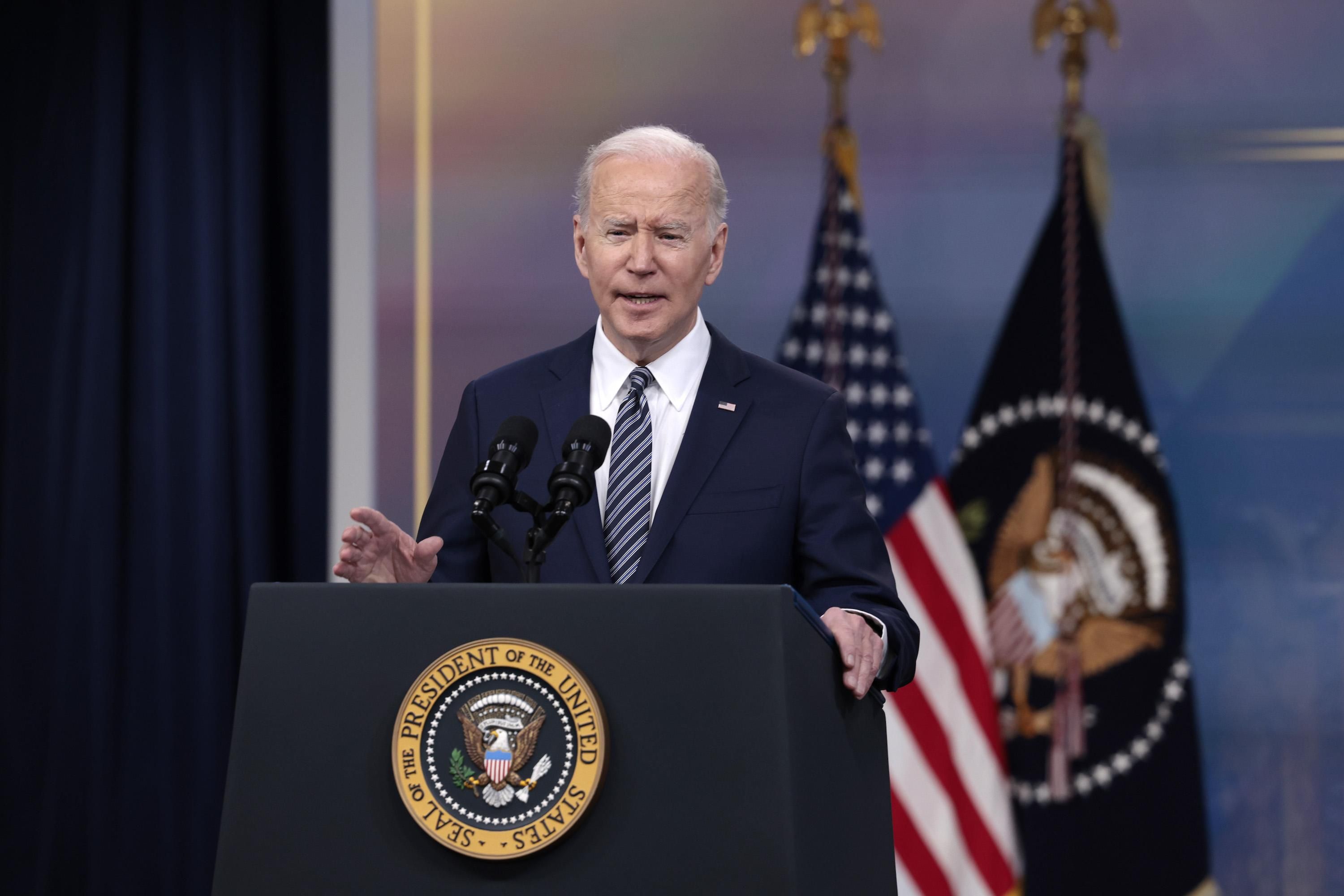
“Whether countrywide sanctions or blockade, U.S. policies have hurt civilian populations in targeted countries in what amounts to unjust collective punishment.”
A coalition of two dozen organizations on Thursday urged President Joe Biden to overhaul U.S. policies regarding economic sanctions and blockades so that they no longer amount to “unjust collective punishment of civilian populations around the globe.”
“These policies ultimately worsen global public health and put at risk countless millions across the world, depriving them from their right to health, lifesaving medical care and equitable access to Covid-19 treatments and vaccines.”
The demand, according to a letter to Biden—led by groups including Afghans for a Better Tomorrow, the National Iranian American Council, and Women Cross DMZ—is particularly urgent in light of the ongoing Covid-19 pandemic, which is compounding the civilian impact of the U.S. sanctions regime and which the U.S. president pledged to address on a global scale.
The letter calls “the swift and severe sanctions” imposed on Russia following its invasion of Ukraine a recent example of the U.S. using the economic measure as “a tool of first resort for U.S. foreign policy.” The consequences of such policies have hit close to home, the letter adds, noting, “We have watched helplessly while our families and loved ones struggle under the weight of economic pressure in our countries of heritage.”
In Cuba, for example, “U.S. sanctions have impoverished the population, leading Cubans to suffer from scarcity of food, essential medicines, and needed medical equipment,” the letter declares, while Gazans suffer from a U.S.-backed Israeli blockade that’s keeping “key essential drugs and medical disposables at ‘zero stock’ levels” and has blocked entry of devices needed for coronavirus treatment.
Other countries singled out in the letter include Afghanistan, North Korea, Yemen, and Iran, the latter a country where “U.S. sanctions have devastated the economy and the livelihoods of millions of people, while slowing the response to Covid-19 in one of the world’s early epicenters for the virus.”
And in Venezuela, broad U.S. sanctions “contributed to a 72% collapse in per capita income, heightening food insecurity and worsening the health and economic crisis facing the civilian population,” according to the letter.
“Whether countrywide sanctions or blockade,” states the letter, “U.S. policies have hurt civilian populations in targeted countries in what amounts to unjust collective punishment. Despite the crucial goal of the Biden administration to tackle the Covid-19 pandemic on a global scale, these policies ultimately worsen global public health and put at risk countless millions across the world, depriving them from their right to health, lifesaving medical care and equitable access to Covid-19 treatments and vaccines.”
Despite a review of sanctions that began last year, the letter accuses the U.S. government of failing “to significantly alter course” and says it is instead furthering “policies that fuel humanitarian and public health disasters.”
To change course, the letter states, the administration must “ensure that sanctions are targeted, proportional, connected to discrete policy goals, and reversible.”
“Only by grappling with the full impact of sanctions can the U.S. ensure that sanctions don’t exacerbate the plight of ordinary citizens and serve, rather than undermine, U.S. interests,” the letter concludes.
Afghanistan Facing ‘Total Collapse’ as Biden Refuses to Release Central Bank Assets
Arash Azizzada, co-founder of Afghans for a Better Tomorrow, issued a statement referencing the disastrous impact on civilians from the U.S. seizure of billions in funds from Afghanistan’s central bank reserve—funds the letter frames as “critical to a functioning economy and needed to support urgent relief that can forestall widespread famine across the country.”
“It’s beyond time that America is held accountable for its policy of economic strangulation around the world, one that is slowly erasing thousands of promising Afghan lives by the day,” he said.
“While our community ensures delivery of critical aid to countless Afghans who are starving,” said Azizzada, “America’s sanctions and theft of Afghan reserves is ensuring misery and pain that will be felt for generations to come unless it changes drastic course today.”



